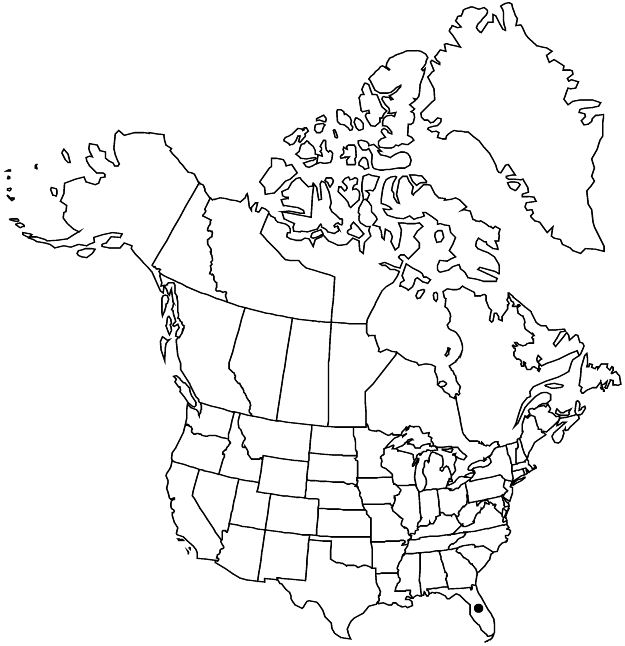Croton linearis
Enum. Syst. Pl., 32. 1760.
Shrubs, 10–20 dm, dioecious. Stems well branched from base, stellate-hairy. Leaves not clustered; stipules rudimentary; petiole 0.3–1 cm, 1/10–1/7 leaf blade length, often with 2 sessile or stipitate glands at apex; blade linear to narrowly oblong, 3–7 × 0.3–1.5 cm, mostly more than 4 times as long as wide, base cuneate to obtuse, margins entire, apex obtuse to acute, abaxial surface whitish yellow, densely appressed stellate-hairy, adaxial surface green, glabrous or minutely stellate-puberulent. Inflorescences unisexual, racemes; staminate 4–10 cm, flowers 10–30; pistillate 3–5 cm, flowers 5–12. Pedicels: staminate 1–2 mm, pistillate 2–3 mm. Staminate flowers: sepals 5(–6), 2–2.5 mm, abaxial surface stellate-hairy; petals 5–6, spatulate, obtuse, 1.5–2.5 mm, abaxial surface glabrous except margins ciliate; stamens 12–17. Pistillate flowers: sepals 5, equal, 2.5–3.5 mm, margins entire, apex incurved, abaxial surface canescent; petals rudimentary or 0; ovary 3-locular; styles 3, 2–3 mm, 2-fid, terminal segments 6. Capsules 5–7 × 4–5 mm, smooth; columella with 3 rounded, inflated lobes. Seeds 3–4 × 1.5–2 mm, dull.
Phenology: Flowering year-round.
Habitat: Rocky limestone pinelands, coastal areas.
Elevation: 0–30 m.
Distribution

Fla., West Indies.
Discussion
Croton linearis in the flora area is found only in Martin, Miami-Dade, Monroe (Keys only), Palm Beach, and St. Lucie counties.
There has been some confusion in the past with the application of the name C. cascarilla (Linnaeus) Linnaeus to this taxon, but C. cascarilla is now considered to be a synonym of the West Indian C. eluteria (Linnaeus) W. Wright (B. W. van Ee and P. E. Berry 2010b).
Selected References
None.